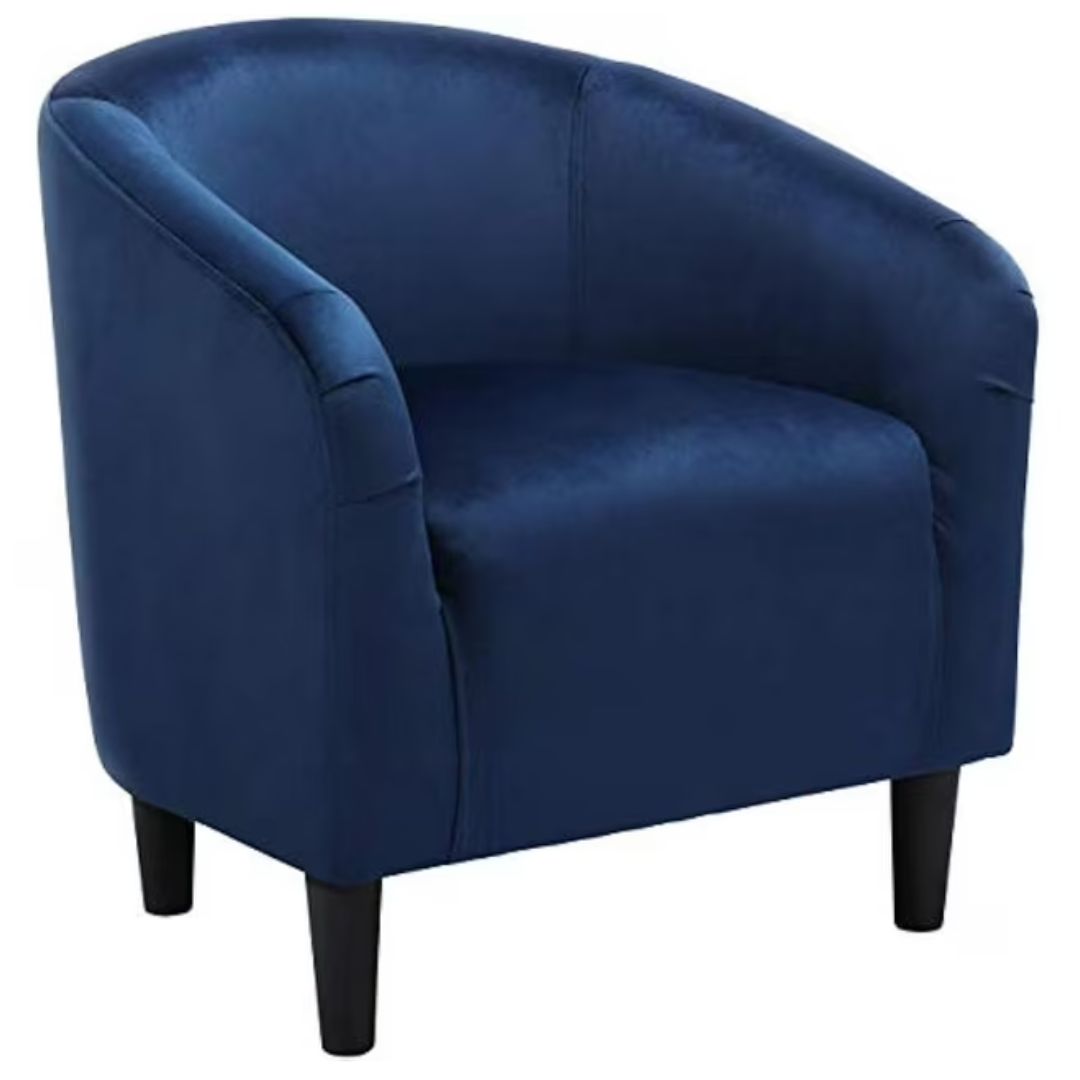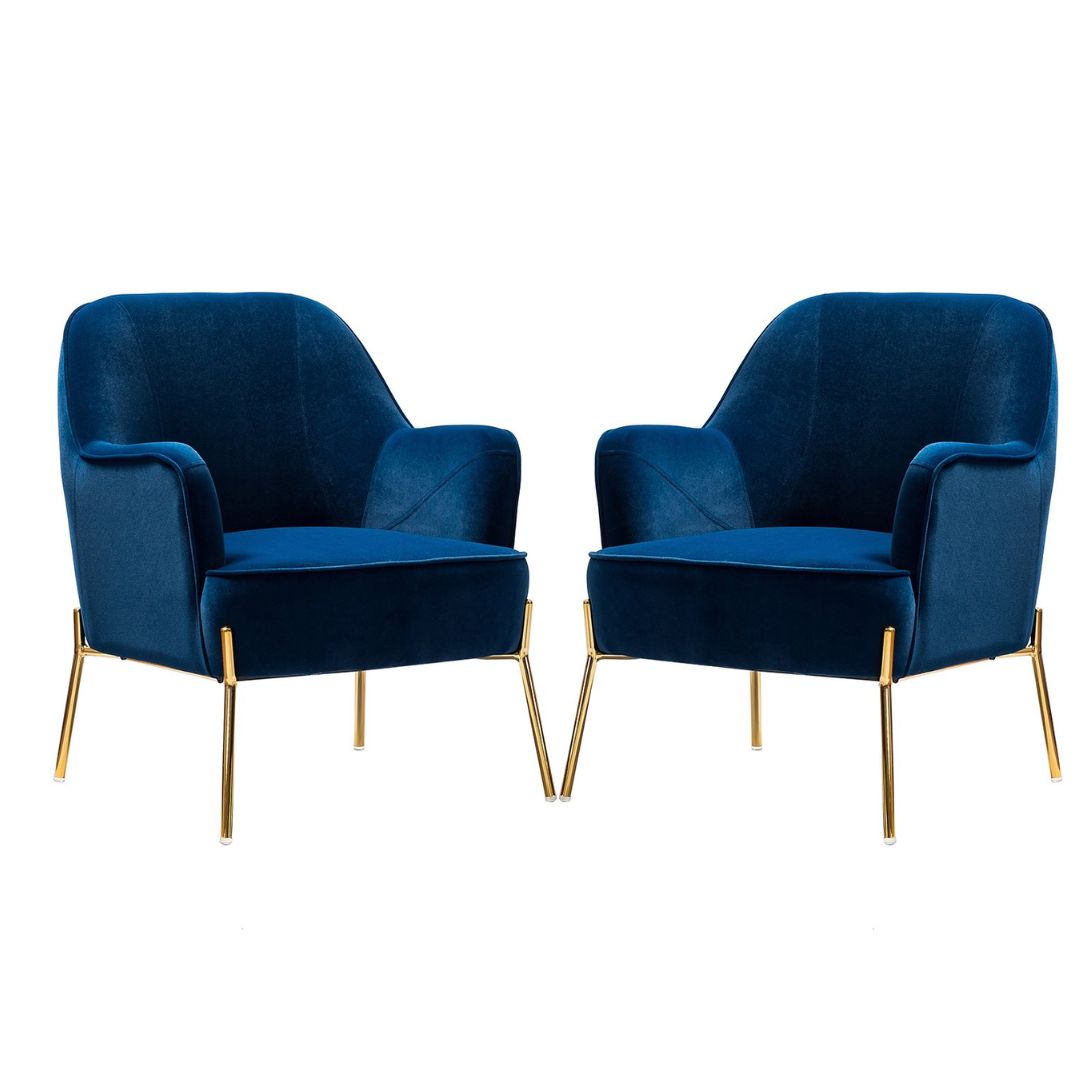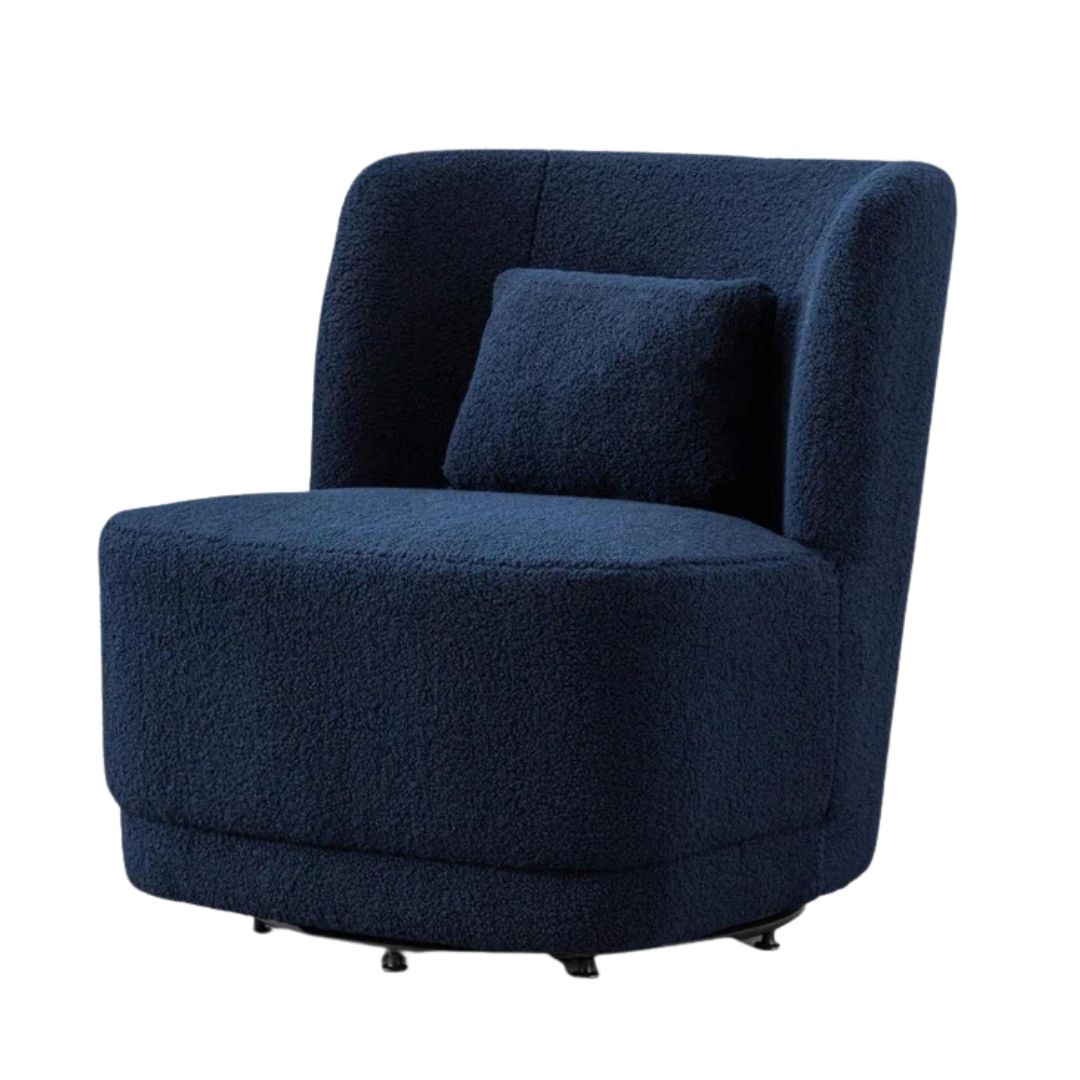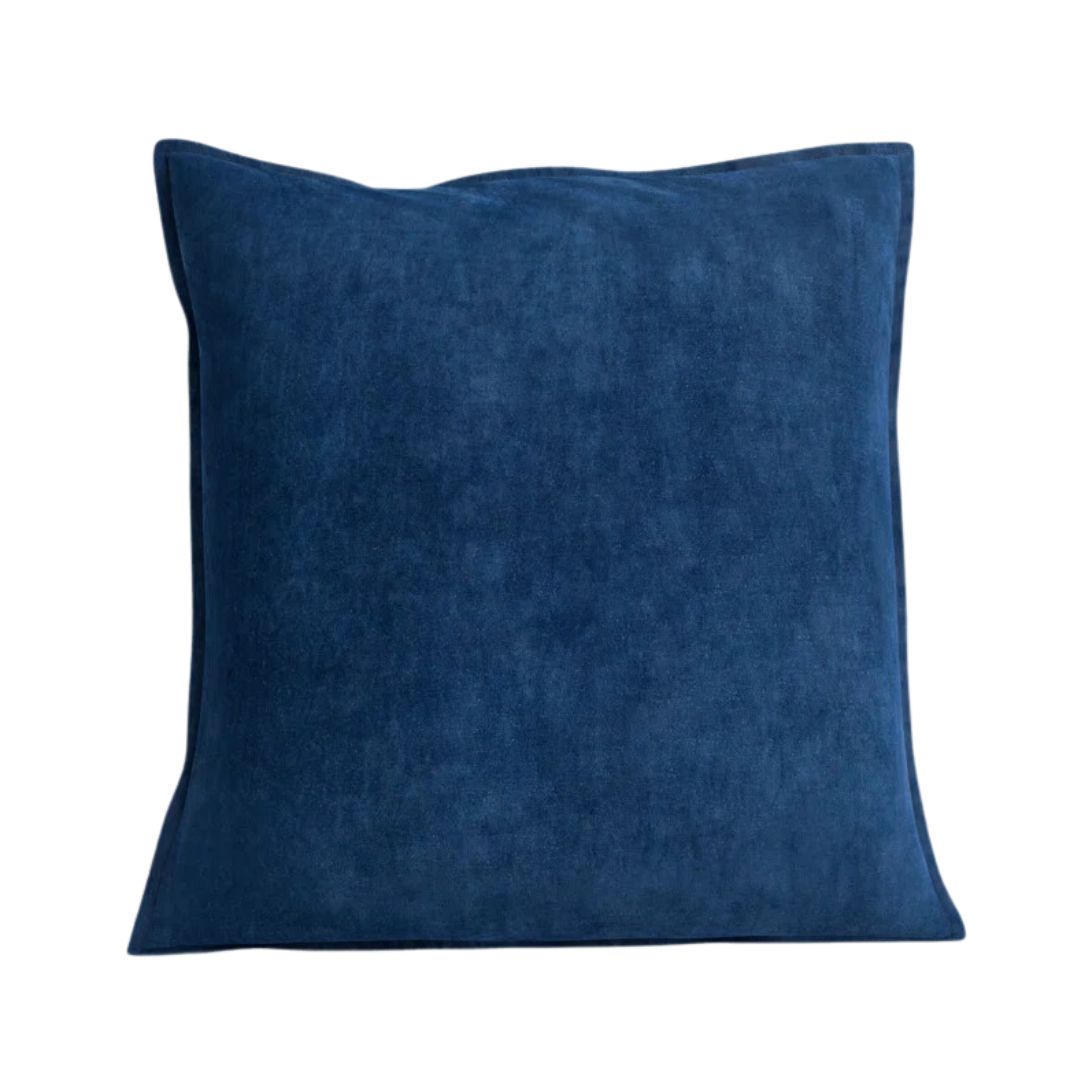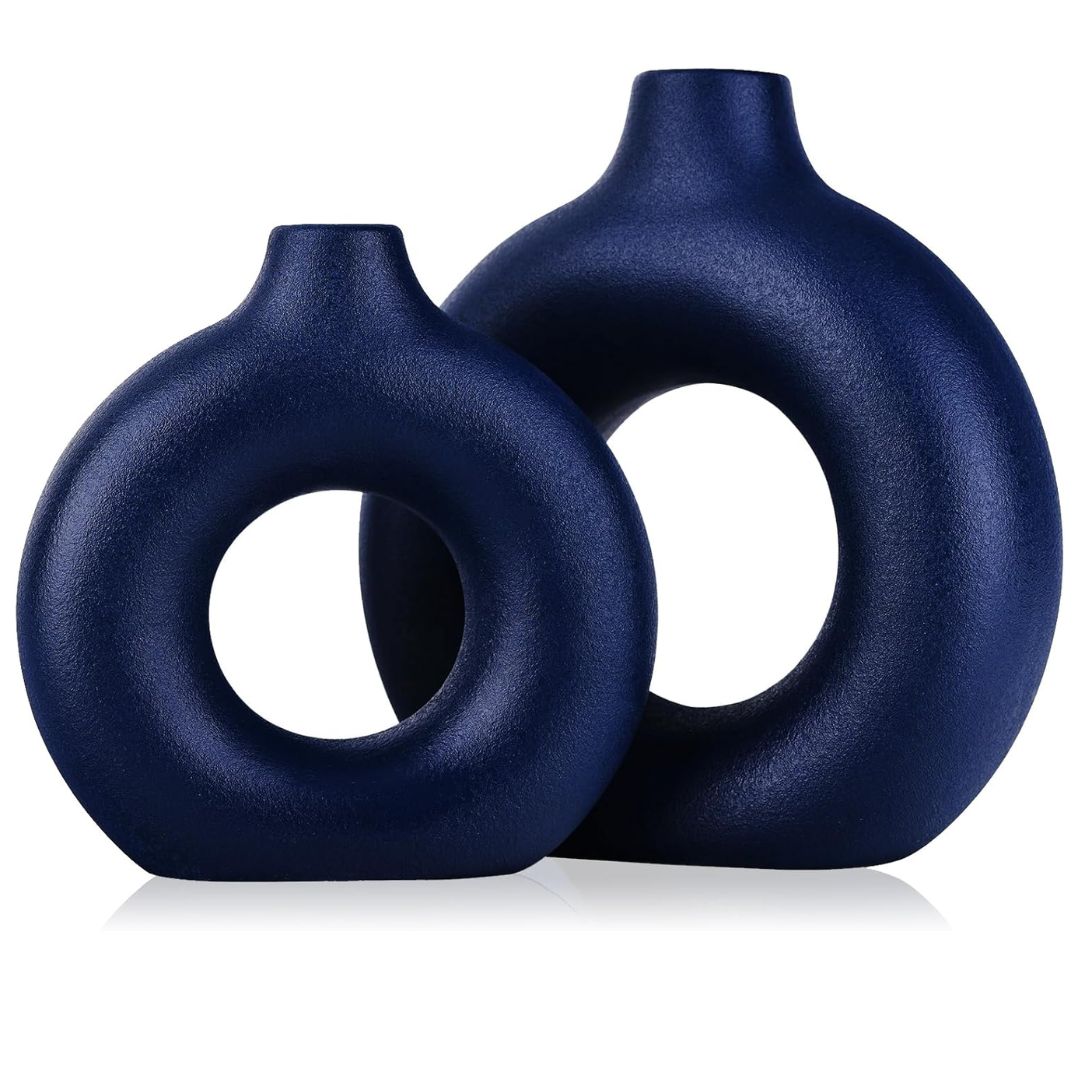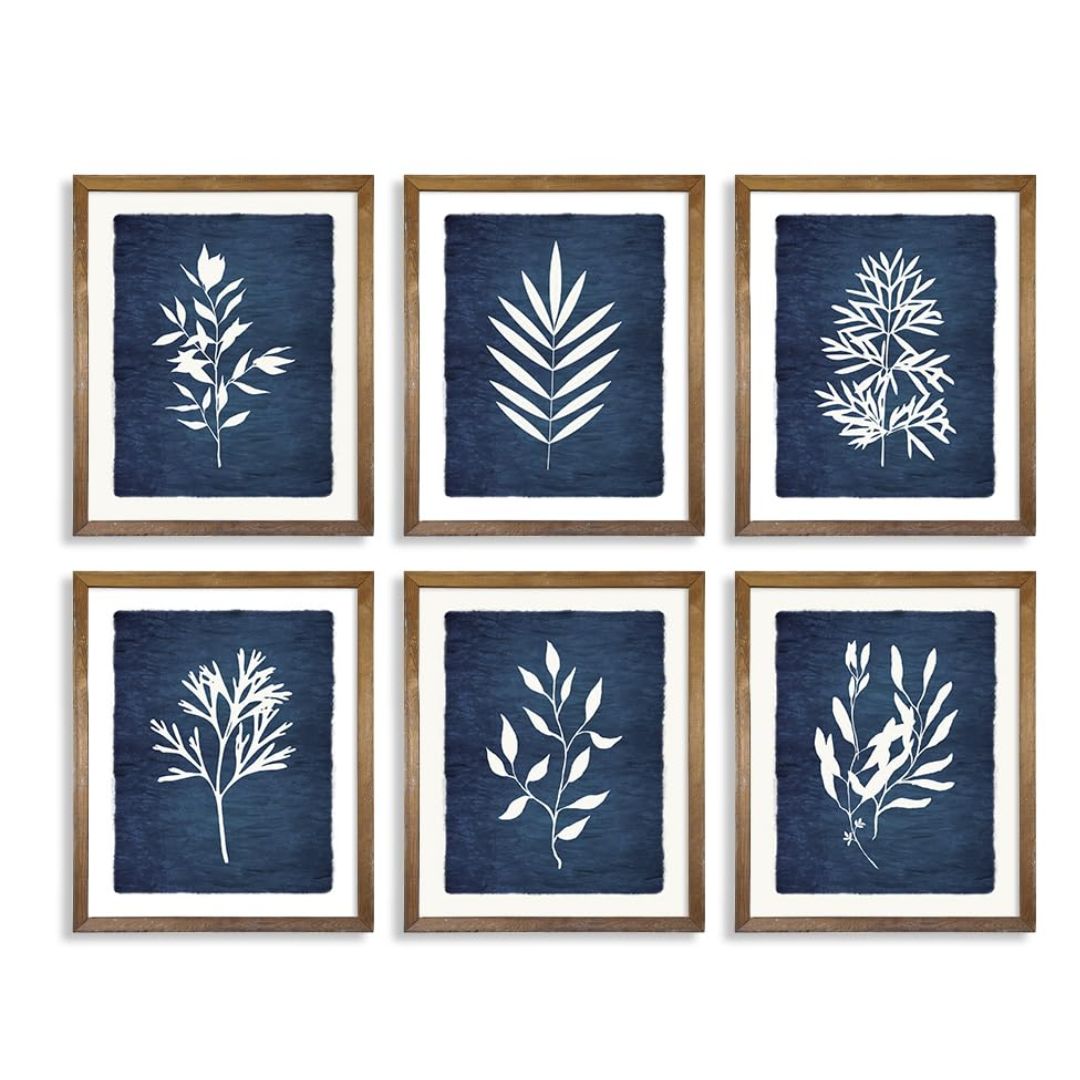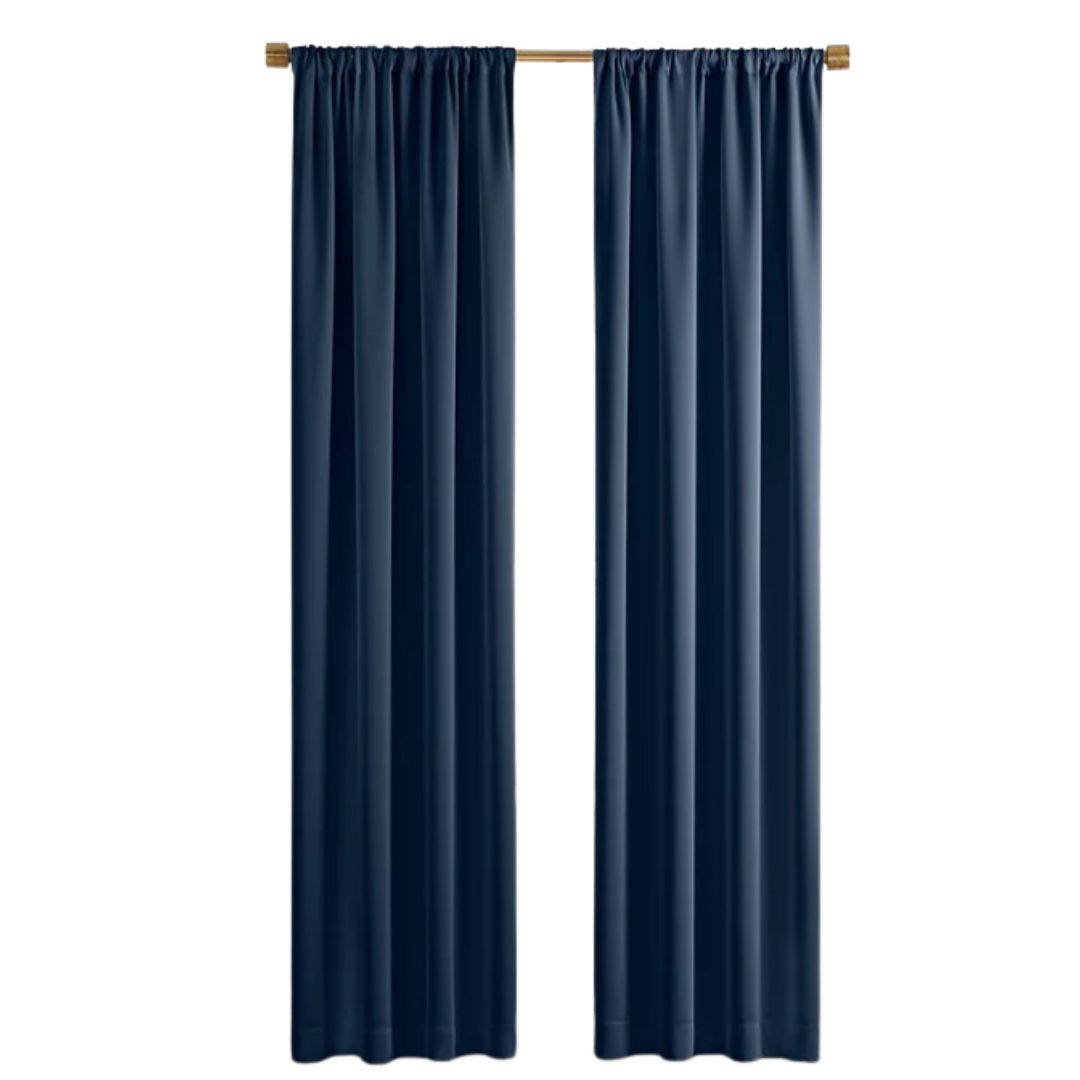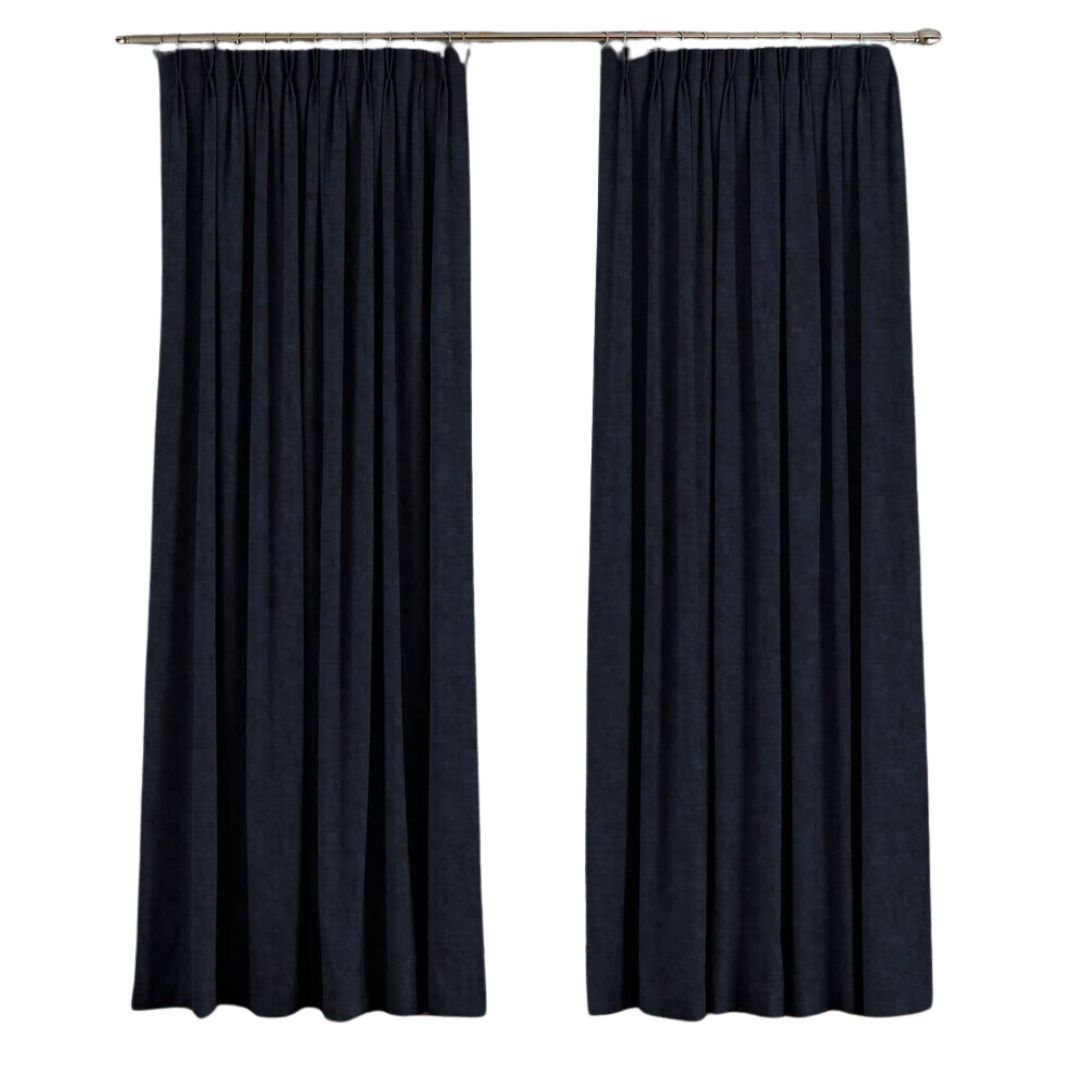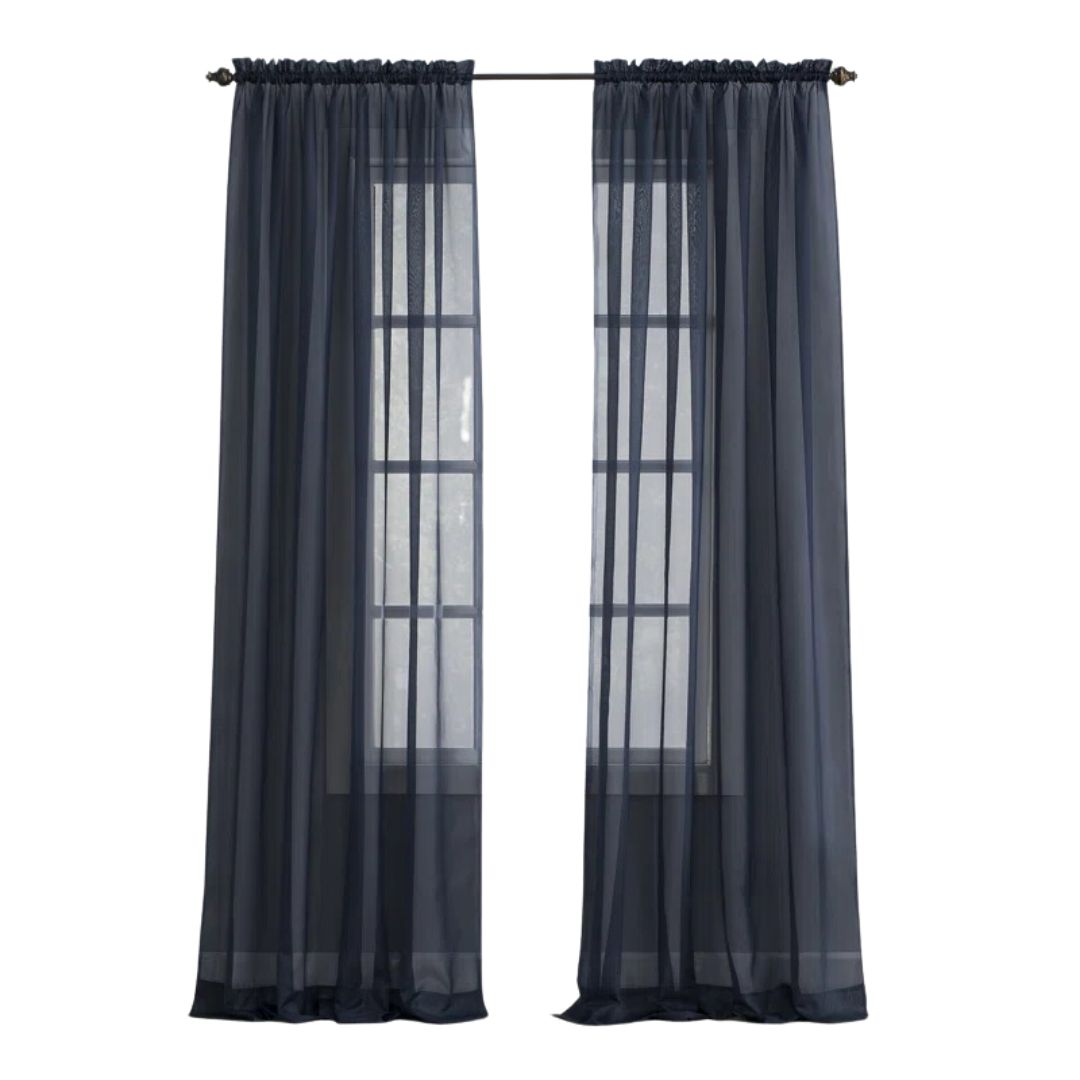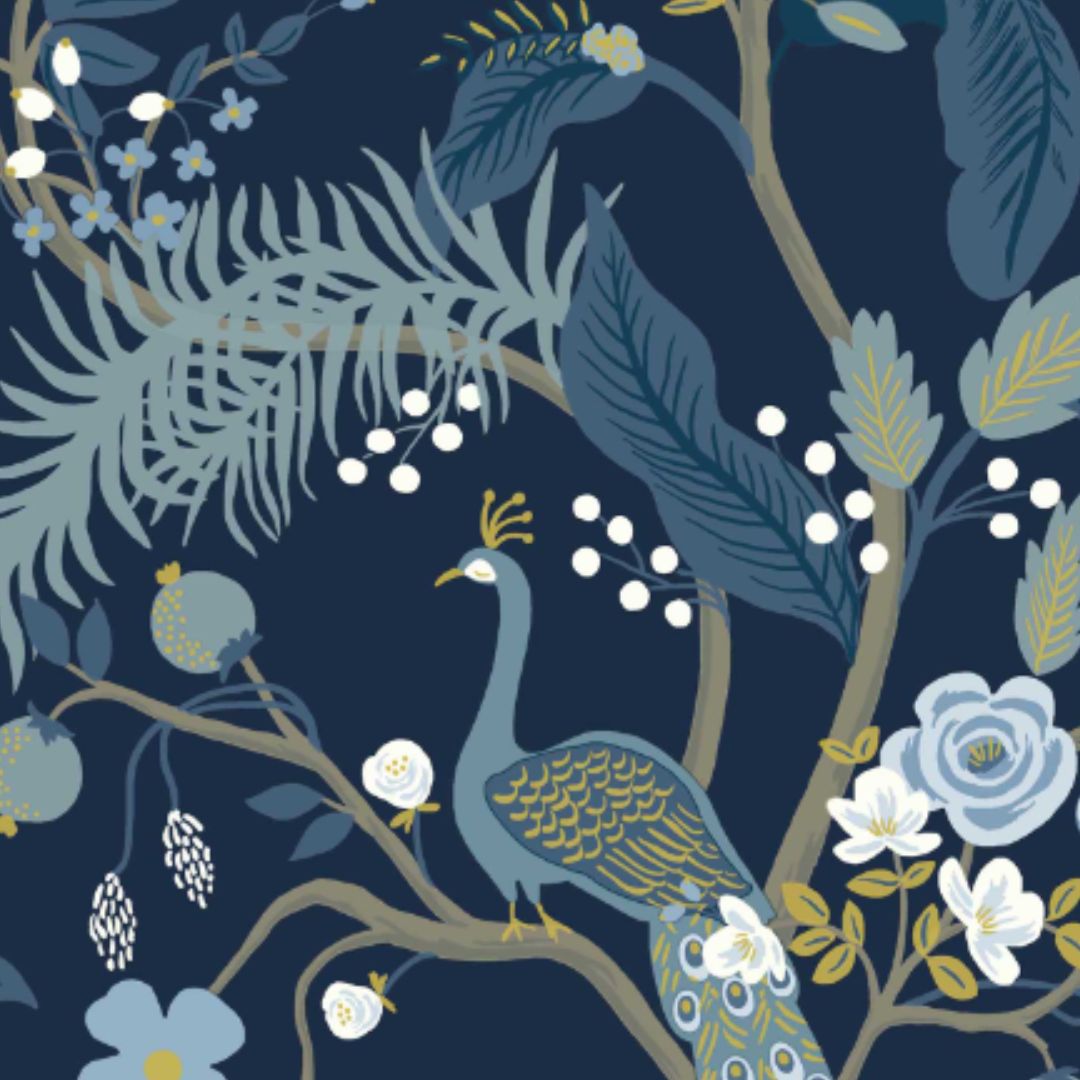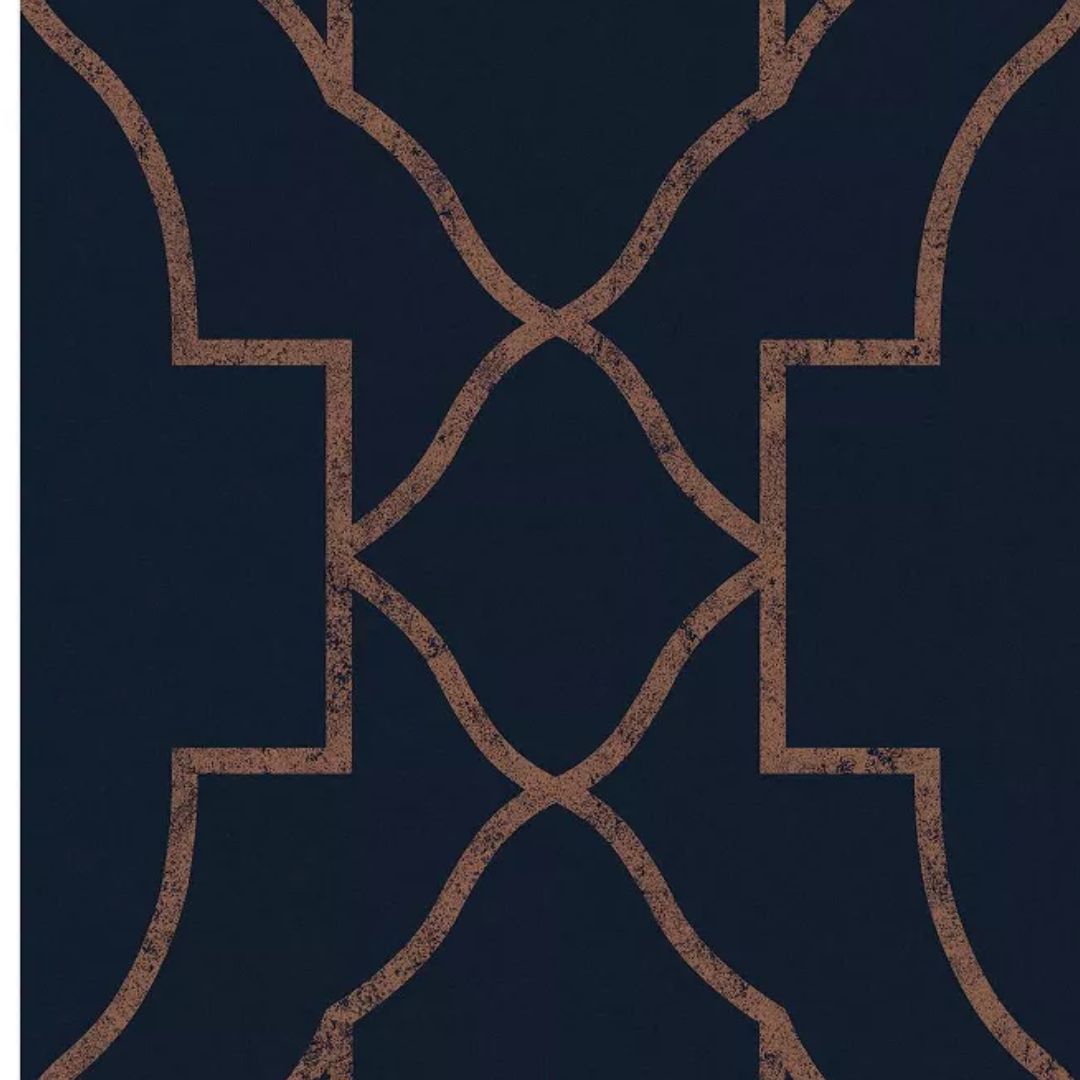Navy Blue Living Room Ideas — 14 Examples to Help You Dress up This Room in a Sophisticated Way
Take a look at these fresh interpretations of navy blue that are making living rooms feel more dramatic and luxurious
- 1. Consider a deep, navy blue statement sofa
- 2. Or go for navy blue accent chairs
- 3. Create a navy blue living room with pillows
- 4. Paint the joinery navy blue
- 5. Or simply paint the ceiling
- 6. Layer different navy blue tones
- 7. Consider painting the walls and ceiling navy blue
- 8. Add navy blue in unexpected ways
- 9. Paint the doors navy blue
- 10. Soak the living room curtains in navy blue
- 11. Pair navy with other complementing tones
- 12. Try a bold navy wallpaper to bring in pattern
- 13. Pair navy with metallic tones
- 14. Tone down dark blue with neutrals
The Livingetc newsletters are your inside source for what’s shaping interiors now - and what’s next. Discover trend forecasts, smart style ideas, and curated shopping inspiration that brings design to life. Subscribe today and stay ahead of the curve.
You are now subscribed
Your newsletter sign-up was successful
There's something so mesmerizing about navy blue; a pleasing color that doesn't just read nautical. The tone is now part of mainstream home décor, and easily conjures up feelings of dependability, power, and authority. Sure, it's a bold choice but it can feel classic, new, and fresh if you use it creatively — via paints, furnishings, or decorations.
The tone is extremely versatile and decorating with navy works in almost every style of décor. Use it on the walls when you want to go dark but not quite black. Or use it as a contrast against white trim to highlight architectural details. All in all, blue living room ideas can convert a boring space into an inspiring one.
Take a look at these navy living room ideas to get started.
1. Consider a deep, navy blue statement sofa
There are so many colors that go with navy blue — the opportunities are endless! One great way to incorporate navy into your space is with statement furniture pieces. Dress up your living room with a tufted navy blue upholstered piece and add a few muted pillows with pops of blue to layer up the scheme.
"The formal living room includes a modern reproduction of a Gino Sarfatti chandelier, a Chinese side table purchased in Beijing, and a sofa finished in blue cotton velvet," shares Jill Lewis of Jill Lewis Architecture. "To highlight the chandelier and soften the mood, the ceiling was painted a matching shade of deep blue. Warm white paint is a unifying gesture throughout the apartment, to brighten and liven the historical details, with black and gray details, warm bronze metal, and a few gestures in a deep “petroleo” blue/black. Bold patterns and textures expressed using traditional calcareo tiles, wallpapers, and fabrics, are all a reflection of the client's travels, as well as the high energy of an active family of five."
2. Or go for navy blue accent chairs
Add to the vibrancy of your living room furniture with one or two accent chairs draped in navy blue. Take this space by Salt Design Company for instance. Not only do the chairs add a modern touch to the otherwise muted space, their curves also ensure comfort, encouraging the dweller to spend long, cozy moments in the room.
To make your accent chairs truly stand out, consider a monochromatic color scheme where the seaters double up as the hero pieces. A navy blue living room has the power to take a casual space to a contemporary and elegant one.
The Livingetc newsletters are your inside source for what’s shaping interiors now - and what’s next. Discover trend forecasts, smart style ideas, and curated shopping inspiration that brings design to life. Subscribe today and stay ahead of the curve.
3. Create a navy blue living room with pillows

Don't want to commit to a navy blue living room forever? Consider using it in the furnishings that can be changed up as you choose. Pepper your living room sofa with navy blue pillows and add a punch of elegance effortlessly.
"The apartment follows a strict code of clean lines and a minimalistic material palate," say Amit Khanolkar and Advait Potnis, founders of DIG Architects. "We've used a color-blocking technique to offset the otherwise muted palate in the house. Blue is the essence of color in this space, which is expressed via an ombré rug, wall installation, pillows, and a navy blue velvet curtain."
4. Paint the joinery navy blue

Another way to incorporate navy blue within your living room color scheme is through paint. To highlight an architectural element — as in this case, the bookshelf — consider painting it a deep blue to give it a standout quality.
The rest of the scheme is offset with light gray sofas and white walls. One of the best ways of decorating bookshelves that are painted a dark hue is to choose neutral-colored accessories. These will stand out wonderfully and give a well-curated look to the space.
5. Or simply paint the ceiling
If you're looking for a navy living room idea to add a dark dose to the space, without overdoing it, a great way to do this is with painted ceiling ideas. This is a huge trend at the moment and a design style endorsed by experts.
A ceiling that is painted will not only elevate the overall vibe of the room, but can also alter the visual, and spatial dimensions of the space. It can make an absurdly tall ceiling feel lower or create a jewel box effect in a small space. Plus, there's always that feeling of grandeur with painted ceilings. Want to give it an extra boost? Consider adding a long, eye-catching chandelier to boost the ceiling's color.
6. Layer different navy blue tones
If your living room is the most frequented space in your home, particularly in the evening, consider color drenching it in all blues — the perfect evening color. Paint the walls navy blue, and let the color flow to the furniture and even the carpet. Choose lighter blue tones for the accessories and other furnishings, otherwise the room becomes too dark.
"Navy is one of the few rich, bold colors that are calming and adds an instant feeling of coziness, while still feeling fresh year after year," say Alice Arterberry and Barrett Cooke, interior designers at the design studio Arterberry Cooke. "Make sure you're choosing a navy with green/grey undertones instead of red/violet undertones."
When layering a room with the same tone, remember that a disparate selection of objects can look quite haphazard if not displayed well. Create the scheme in a clever manner with the right positioning of proportioned objects that have similar scales, for a harmonious feel. The dark navy walls can ground everything into a cohesive whole.
7. Consider painting the walls and ceiling navy blue
"Paint your walls and ceiling in blue," says Natasha Bradley, interior design director at Lick. "It has a positive effect on the body and mind as this hue reflects the color of the sky and ocean. If you paint your ceiling a dark blue, it will cause the body to produce a chemical that is calming and provides a feeling of tranquillity. If you want to cocoon yourself then choose a dark color like our Blue 07."
For a cocooning effect and a great cozy living room idea, take the paint around the length and breadth of the room. Here, the navy blue walls and ceiling have given the space a wonderfully contemporary twist, and the bright pink sofa adds another layer of color to this vibrant space.
"If you have a smaller space with lower ceilings we suggest you paint the whole room, including the ceiling, in satin finish navy," say Alice and Barrett. "Painting the ceiling and walls the same color helps extend the height of walls and makes the room feel larger and more loungy. Accent the room with a cream-colored rug and brass light fixtures with cream shades."
8. Add navy blue in unexpected ways
If you're unsure about a navy living room, we suggest you introduce a few accessories to introduce the color. "Be adventurous; bring in blue in unexpected ways like a raffia-covered console, lacquered side table, or through curios," says Jennifer Morris, interior designer and founder of JMorris Design.
Navy blue is so eye-catching that even a hint of it can transform a space. In your pared-back, modern living room — sprinkle navy via pillows and artwork, so the color stands out but does not dominate the space.
9. Paint the doors navy blue
"If you have a large living room with high ceilings, we suggest using navy on an area of functional millwork such as an entertainment center, doors, or bar areas," say Alice and Barrett. "It will help anchor the space and focus your attention."
By painting the door navy blue, you can introduce some color into your room without having to select a random wall and paint it. Go all the way and paint the architraves and skirting boards — since it's just the door you're painting, the effect won't look overwhelming.
Painting the internal door can become a great living room DIY project. Keep in mind that the best paint for interior doors is semi-gloss because it's easy to clean and has a long-lasting finish. If you are re-painting the door, you'll have to remove it from the hinges, strip the existing paint, and sand the door. Otherwise, you can simply paint a plain door while it's already hung on its hinges.
Flat doors are the easiest to paint, as you just need a roller to color them. Panel doors can take time as you need to fill in the panels and ensure you work in the direction of the grain of the wood.
10. Soak the living room curtains in navy blue
If you’re just testing the waters with navy blue, why not try injecting the color with a few soft furnishings rather than committing to paint? Floor-to-ceiling velvet or twill living room curtains will block the light, so you don’t get disturbed by the evening chorus of noise and streetlights. Don’t skimp on fabric and make sure the curtains are well-lined for further insulation.
"If you don’t have any discernible build-outs in your space, floor-length curtains work just as well," say Alice and Barrett. "Walls should stay a warm white with all trim being painted a medium tone cream to layer the space and add depth. Accent the room with a dark rug and light fixtures."
If you live in a period-style property, consider cornicing to conceal the curtain tracks; a neat trick that means the floor-length drapes don’t distract from the decor of the room. You can also install double tracks or poles so that you can hang voiles or muslins behind your curtains.
11. Pair navy with other complementing tones
A big tip in pairing color is picking two tones with comparable depth, so your scheme doesn't look too off. When you choose two colors with extremely competing tones, say a matte with a florescent, the result can be jarring.
When choosing combinations, there are several colors that go with navy. From the classic creams, and whites to earthy greens and greys, these are some of the most fool-proof combos. Jewel tones such as burnt orange, emerald, saffron, and even glossy blacks when paired with navy look fantastic.
Here, the soothing tones of inky blue work perfectly when teamed with a bold hit of mustard. The navy walls give the space a formal feel, while the mustard armchair creates a playful contrast that adds a contemporary twist.
12. Try a bold navy wallpaper to bring in pattern
To make a real impact, try a bold patterned wallpaper in the living room. Be clever with the color tone, the prints, and even the wall where you want to display it.
When choosing a wallpaper, it's never a good idea to do so in isolation. Think about how different elements in your room will sit together around the patterned wall. Ensure the color of the wallpaper is mirrored in any one or two elements in the room.
In vintage homes, a trompe l’oeil wallpaper can go a long way in sealing the space's royal design story. If it's an exploration of materiality you're after, a tile or fabric-effect wallpaper in navy can look superb.
Wallpapering the ceiling can add character, and visually adjust a room’s proportions. If you have a small apartment living room, a geometric wallpaper high up can pack a punch, turning a small space into a real treat.
13. Pair navy with metallic tones
Make the most of the decadent dark tones by mixing your navy living room walls with luxurious materials. When paired with bright metals, navy can make a room feel opulent and grand. The somber tones of blue allow the gold to radiate without seeming gaudy or glaring.
Unless you’re taking a deep dive into opulence, gold usually works best in small, subtle doses. Consider bringing in a contemporary or mid-century modern chandelier for your living room lighting scheme. With just a touch of gold on the fixture, paired with blue walls, a glorious interior can be created.
Gold-colored fabrics with hints of glitter are also the perfect partner for warming up deep and dramatic colors such as navy.
14. Tone down dark blue with neutrals
For a bright, fresh living room paint idea, pair navy with a reflective white or cream background as a lovely foil. The color combo also has a nautical feel to it. Perhaps add some wooden elements to further warm the interior.
To create a vibe and to stop it from feeling too clinical, incorporate different luxe textures such as wool, fur, high-end linen, and tactile throws.
Another neutral that can offset the moody navy is light gray. The reason why navy walls and gray sofas don’t visually cancel each other out is that the colors create a wonderful light and shadow effect without looking too stark.
When looking for the perfect gray and blue to pair, you might find the answer in the great outdoors. Gray-blue and pebble gray are perfectly complementary.
Is navy blue a good color for the living room?
For decades, blue has played an important role in interior design, and today, as homeowners are becoming more daring and risky in their choices, the time for deep, moody colors has arrived. Navy blue being a strong color is a favored choice, as it can be paired with other hues to help create the coziest of spaces.
Fresh interpretations of this color are making this space look dramatic and luxurious. Navy blue looks fabulous in upholstery, fabrics, and painted furniture finishes. The tone grounds a space and instantly dresses up any room.
What are some practical navy blue living room ideas?
When used as wall paint, navy envelopes the space and gives it a cocooning effect. The same can be said when the color is used up to the ceiling.
A popular combination with navy blue is yellow, as the two are opposite each other on the color wheel, creating a wonderful contrast. Consider painting a wall navy and adding a mustard sofa in the mix.
Apart from furnishings and accessories, even joinery painted navy blue looks stunning. The color brings out the architectural features of a room and gives the space an inherent grandeur.
If using navy abundantly isn't your thing, the easiest way to play with this color is through accessories. Choose navy blue vases, pots, curios, or a tray. These pieces add a pop to the color scheme and can be moved out should you wish to change the look of your interior.

Aditi Sharma Maheshwari started her career at The Address (The Times of India), a tabloid on interiors and art. She wrote profiles of Indian artists, designers, and architects, and covered inspiring houses and commercial properties. After four years, she moved to ELLE DECOR as a senior features writer, where she contributed to the magazine and website, and also worked alongside the events team on India Design ID — the brand’s 10-day, annual design show. She wrote across topics: from designer interviews, and house tours, to new product launches, shopping pages, and reviews. After three years, she was hired as the senior editor at Houzz. The website content focused on practical advice on decorating the home and making design feel more approachable. She created fresh series on budget buys, design hacks, and DIYs, all backed with expert advice. Equipped with sizable knowledge of the industry and with a good network, she moved to Architectural Digest (Conde Nast) as the digital editor. The publication's focus was on high-end design, and her content highlighted A-listers, starchitects, and high-concept products, all customized for an audience that loves and invests in luxury. After a two-year stint, she moved to the UK and was hired at Livingetc as a design editor. She now freelances for a variety of interiors publications.
